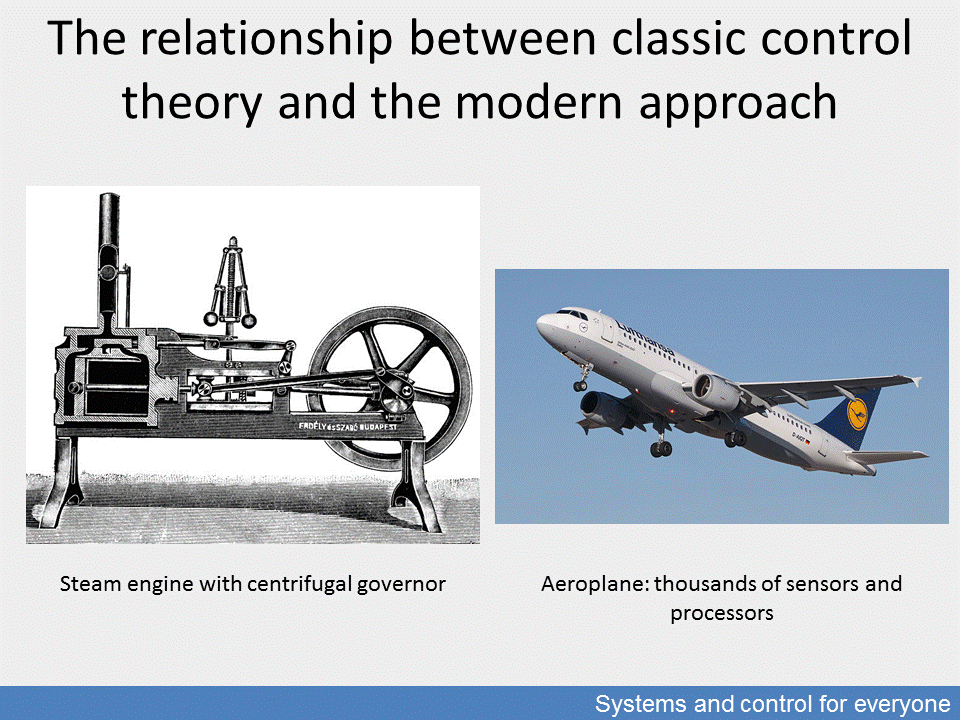

The relationship between classic control theory and the modern approach
The theoretical background discussed here gives an account of a paradigm that is different from the one presented in previous control theory outlines. This paradigm shift was triggered by the control demand of increasingly complex systems, and the evolution of the underlying computer technology. It is instructive to see how modern mathematics emerged as early as in the 19th century, in the wake of the social and intellectual revolution of the Age of Enlightenment. As noted in the introduction, the beginning of the change was marked by the interlinked revolution of geometry and algebra, the appearance of the already discussed group theory and field theory which extended the former worlds of concepts by defining the validity conditions of these worlds within themselves. The resulting framework of ideas, which was based on abstraction rather than direct experience, became the ideal and practical foundation of modern natural sciences, including systems theory which necessarily extends toward complexities. Technical, biological and social developments called for new calculation approaches to complex systems. This extension enables the unification and separation of different types of effect and connection elements, signals and processes with various dynamics, which can be handled with the signal norms in the state spaces of the processes.
In our opinion, it is worth presenting systems theory in the paradigm which is expressed at different levels here but which still form a uniform framework of ideas. The learning and practical application of the individual traditional and modern techniques is the duty of professionals dealing with a given set of problems, after digging into all relevant information. It should be noted that traditional techniques also resulted from strong abstractions, primarily through complex analysis which plays an important role in the new paradigm as well.